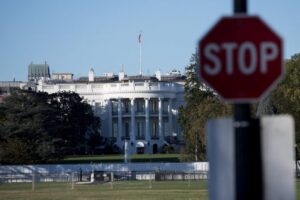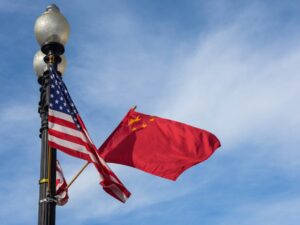
Recent changes in US foreign policy and defense regarding their position on the Russian-Ucranian conflict has generated a few uncertainty and uncertainty around the world.
The alignment of Donald Trump’s administration with those who still a few decades ago was their main enemies, has generated in those countries that have so far seen in the United States their protector and allies, growing concern and demand for new strategic opinions for their safety and defense.
Japan and the European Union had a very similar historical trajectory of reconstruction and pacification after World War II, under a strong influence from the United States.
In fact, after the end of the war in Japan as in Europe, growth was through a strong investment in the modernization and growth of industry and economy, not by intensifying its military power. To this end, they relegated their defense concerns at the US ally, converted in the postwar into “police of the world.”
Today, however, Europe and Japan face similar challenges, apprehending the advancement of the threats represented by Russia and China, while assisting uncertainty the possibility of a strategic US departure after decades of dependence on its military support. Given this scenario, Japan and the European Union have been intensifying its strategic ties.
In November, on the eve of Donald Trump’s presidential election, Japan and Europe signed a security and defense, reaffirming their commitment to a “free and open international order based on the rule of law”, and has delineated future cooperation in maritime security, counter -terrorism, spatial defense and other areas.
If the move to a more robust defense stance has been shown to be necessary before, it has now become more pressing in the face of uncertainties about the role of the United States of America in the NATO. And if it is true that Japan has not yet been directly affected by changes in American commitment, there is a fear that the case may be a case Donald Trump alter US foreign policy regarding Beijing.
For all this, Japan has all the interest in arranging a “plan B”, consolidating the alliance with Europe to be able to ensure Indo-Pacific stability in all scenarios.
This will undergo a mutual reinforcement of the defensive abilities of Japan and Europe.
And it is this scenario that has been debated in the parliaments of European states and Japan.
This closer approach to the security and defense plan may also provide an intensification of economic relations between Europe and Japan, which have already begun to be strengthened in February 2019, when the new trade agreement between the European Union and Japan is celebrated. This reinforcement of trade and economic relations between Japan and Europe would also allow the impacts of the new tariffs that the United States has come to its relations would also be cushioned. economic with third countries.
It is evident that it is easier to reinforce economic cooperation between European Union and Japan than military cooperation, as Japan has serious constitutional restrictions on this matter. And on the other hand, the European Union needs to want to project its power of influence beyond transatlantic relations and expand it to Indo-Pacific.
The world order, as we have known it so far, is changing and the future is as uncertain as Donald Trump’s foreign policy. It is essential that Western democracies review their strategic allies and seek new alliances that guarantee the fundamental values that are their identity and distinctive base.
Source: https://observador.pt/opiniao/a-europa-o-japao-e-a-politica-externa-norte-americana/

